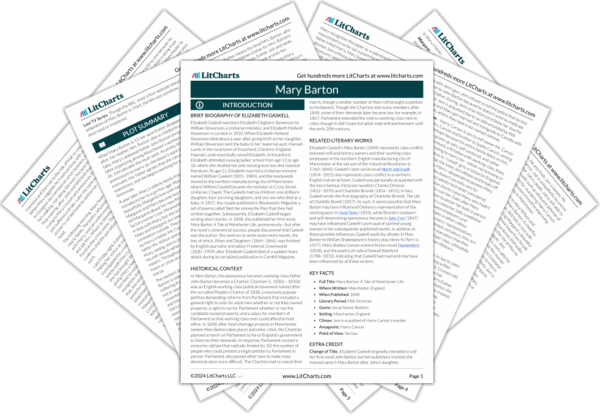Margaret Quotes in Mary Barton
“Every sorrow in her mind is sent for good.”
“Tell me, Margaret,” said Mary, taking her apron down from her eyes, and looking at Margaret with eager anxiety, “what can I do to bring him back to me? Should I write to him?”
“No,” replied her friend, “that would not do. Men are so queer, they like to have a’ the courting to themselves.”
Gentle, reserved, and prudent herself, never exposed to the trial of being admired for her personal appearance […] Margaret had no sympathy with the temptations to which loveliness, vanity, ambition, or the desire of being admired exposes so many; no sympathy with flirting girls, in short. Then, she had no idea of the strength of conflict between will and principle in some who were differently constituted from herself.

Margaret Quotes in Mary Barton
“Every sorrow in her mind is sent for good.”
“Tell me, Margaret,” said Mary, taking her apron down from her eyes, and looking at Margaret with eager anxiety, “what can I do to bring him back to me? Should I write to him?”
“No,” replied her friend, “that would not do. Men are so queer, they like to have a’ the courting to themselves.”
Gentle, reserved, and prudent herself, never exposed to the trial of being admired for her personal appearance […] Margaret had no sympathy with the temptations to which loveliness, vanity, ambition, or the desire of being admired exposes so many; no sympathy with flirting girls, in short. Then, she had no idea of the strength of conflict between will and principle in some who were differently constituted from herself.











